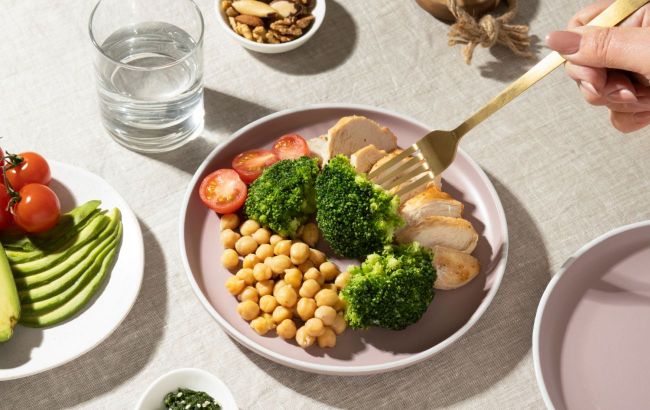Not so healthy as it seems: 6 myths about healthy food
 Six myths about "healthy food" you shouldn’t believe (photo: Freepik)
Six myths about "healthy food" you shouldn’t believe (photo: Freepik)
Popular beliefs about healthy eating don't always reflect reality. There are many myths around "healthy food" that millions of people still believe, even though scientific research has long debunked them. Here are some rules worth following for proper nutrition.
Dried fruits are not always healthy
According to gastroenterologist Yevheniia Belinska, they do contain vitamins, but also a lot of concentrated sugar. Moreover, they are often treated with preservatives or sweeteners.
So they can be eaten, but with caution. They frequently cause bloating and, if consumed in large quantities, can even contribute to weight gain.
Natural doesn’t mean safe
Not every “natural” product is good for you. For example, "natural" syrups are still just sugar.
Natural products may be grown in environmentally polluted areas and contain heavy metals, pesticides, or other harmful substances.
Without proper processing and storage, natural products spoil quickly and may cause food poisoning (such as from salmonella or botulism).
Gluten-free isn’t always better
If you don’t have celiac disease or gluten intolerance, there’s no reason to avoid it. Often, gluten-free products contain more sugar, fat, and starch.
For people without celiac disease or gluten sensitivity, avoiding gluten provides no proven benefit. Sometimes it can even lead to worse nutrition.
Moreover, the price doesn’t always match the quality, and many gluten-free products are simply a marketing trick.
Vitamin supplements can’t replace food
No dietary supplement can fully compensate for poor nutrition.
Nutrition is not just about vitamins: food contains not only vitamins but also minerals, proteins, fats, carbohydrates, fiber, antioxidants, and phytonutrients — all essential for health. Pills usually contain only a few of these.
Vitamins from food are absorbed better. For example, vitamin C from an orange is absorbed more effectively than its synthetic version in a tablet, thanks to accompanying substances (like flavonoids).
Fresh juice doesn’t replace whole fruit
Juices have less fiber and more sugar. Glucose is absorbed more quickly, making you feel hungry again sooner.
A single glass of juice can contain the equivalent of several fruits, more than you'd normally eat whole at once, contributing to overeating and excessive calorie intake.
Some beneficial nutrients (like vitamin C) degrade quickly when exposed to air and light, so juice quickly loses its nutritional value.
Bread isn’t the enemy
Whole grain bread is a source of energy, fiber, and micronutrients. It’s not the main reason for weight gain — a calorie surplus in the overall diet is.
Moderate bread consumption is perfectly acceptable in a weight-loss diet. Eliminating favorite foods like bread can lead to breakdowns and binge eating.
Healthy eating rules
Healthy eating is the foundation of well-being and energy. Here are a few key principles for eating healthily:
- Variety: Eat a wide range of foods to provide your body with all the necessary nutrients. Include vegetables, fruits, whole grains, proteins (meat, fish, legumes), and healthy fats (olive oil, nuts)
- Portions: Pay attention to portion sizes. Even healthy food shouldn’t be eaten in unlimited amounts
- Fewer processed foods: Avoid foods high in sugar, salt, and trans fats (chips, fast food, sweets)
- Meal regularity: Eat 4–5 times a day, including healthy snacks between main meals, to maintain energy levels
- Hydration: Don’t forget to drink enough water — usually about 2 liters per day, depending on activity and weather
- Physical activity: Combine healthy eating with regular physical activity for better results
Sources: Instagram of gastroenterologist and therapist Yevheniia Belinska and website WebMD.
This material is for informational purposes only and should not be used for medical diagnosis or self-treatment. Our goal is to provide readers with accurate information about symptoms, causes, and methods of detecting diseases. RBС-Ukraine is not responsible for any diagnoses that readers may make based on materials from the resource. We do not recommend self-treatment and advise consulting a doctor in case of any health concerns.

